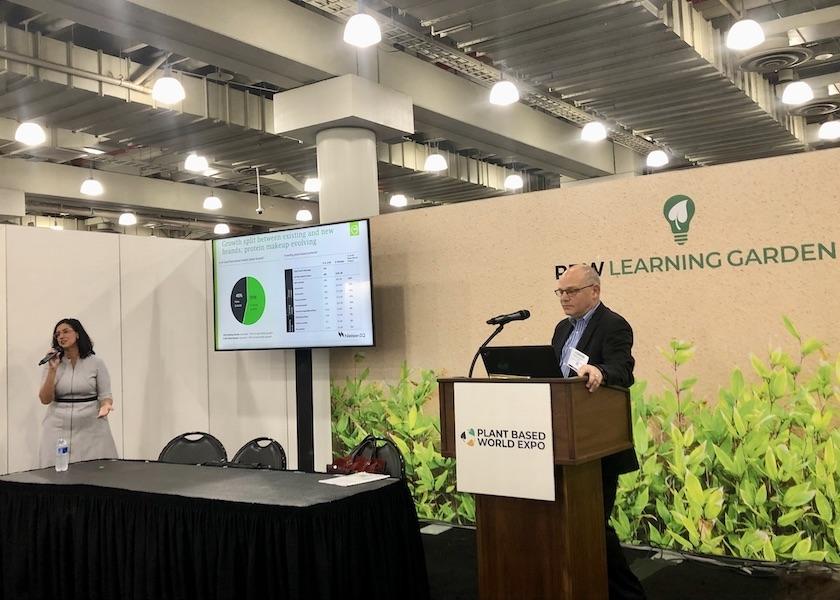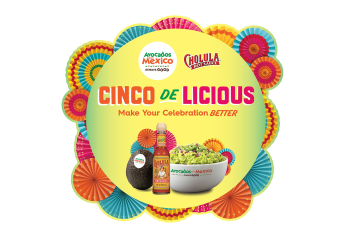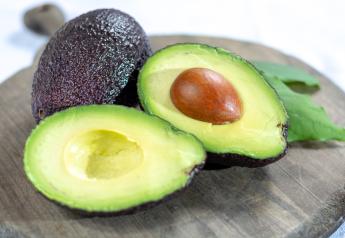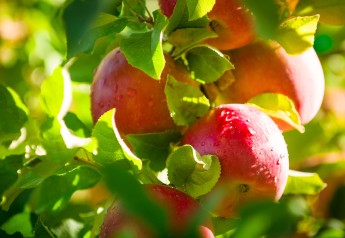Shoppers like flexible diets, preferences produce retailers can use

NEW YORK — Grocery shoppers would rather be flexitarian than vegan in their food choices in the same way they’d rather be sober-curious than 100% abstinent in their drink choices.
They’d like the freedom to dabble in healthy habits rather than dive right in, say the panelists at an education session at the Plant-Based World Expo in mid-September. Flexitarians are flexible vegetarians, who eat a diet of mostly vegetables, fruit, grains and legumes but with the occasional meat dish when they really want it.
Sherry Frey, vice president of total wellness at NielsenIQ, and Steve Markenson, research and insights director of FMI, interpreted the findings of the inaugural “Power of Plant-Based Foods and Beverages: A Look at Emerging Consumer Perspectives” report. The report was published by FMI, rebranded to mean Food Marketplace Inc., the Food Industry Association.
“For instance, there were almost 7 million searches for ‘vegan’ while only almost 2% of shoppers are vegan. They’re using those principles,” Frey said.
That’s the idea behind plant-based approaches to eating: It’s focusing on plants, but not limited to plants. Animal products are not banned.
It’s a softer, easier way to look at your lifestyle choices, while still trying to improve.
Related: Expo panelists: Plant-based products gateway to whole produce
The top four reasons people try plant-based foods (which includes whole, fresh fruit and vegetables, but often means protein and dairy alternatives):
- Better for me
- Better for the planet
- Taste
- Allergies or intolerances
The No. 1 reason? Health and nutrition, Markenson said. “Taste, though, was definitely a strong driver for folks,” he said.
When the surveyors asked what prompts shoppers to continue eating plant-based food, taste rose in importance to almost the same level as health and nutrition. And when shoppers indicated why they haven’t tried or stopped eating plant-based foods, the No 1 reason was taste, followed by cost and the food item falling short of their expectations, including texture or mouthfeel.
The idea behind flexitarianism that retailers and brands need to understand, Frey said, is that only 1% of shoppers buy meat alternatives alone. Most shoppers buy meat plus meat alternatives, as well as fruits and vegetables.
“It’s not an either-or situation,” Frey said.
Labels
Brands and packaging professionals, take note: About 45% of shoppers want to see sustainability labeling when they’re looking for plant-based foods, the report shows.
Compared to other types of plant-based foods, shoppers think fruits and vegetables have the most positive association with its impact on the environment, the report shows. About 80% of shoppers said fresh produce has a positive or no-to-minimal impact on the environment, followed closely by the beans, nuts and grains category at 77%.
In contrast, the next three categories — dairy milk alternatives, dairy product alternatives and starch or carb alternatives — tied at 72% in consumer confidence.
A study of consumers on the internet shows they’re worried eating plant-based foods isn’t enough to have a positive impact on the environment.
“We’re watching things in term of animal welfare, environmental impact and socially responsibility,” Frey said. “Clean labels: This is an area where we’re seeing a lot of growth.”
Clean labels are those that say “free from” some generally undesirable ingredient.
Photos: Plant Based World Expo in NYC
Consumers are interested in ethical farming and natural products with whole ingredients.
The report shows consumers are paying attention to a food product’s health attributes and processing methods (like cold-pressed), so that information on packaging could be helpful too.
Future of plant-based
Consumers anticipate increasing their plant-based food consumption in the future, with 16% of all shoppers saying they’ll eat “a lot more” and 33% saying “a little more.”
For shoppers who already eat plant-based alternatives, 27% expect to eat “a lot more” plant-based foods in the future, and 35% said “a little more.”
Shoppers don’t always know where to find certain plant-based foods, but they do know where to find what the produce industry calls “the original plant-based food” — fruits and vegetables. About 92% of shoppers who eat plant-based foods know where to their fresh produce, according to the report.
The study showed many people think there are too many ingredients in meat alternatives, and they favor protein alternatives made with simple foods such as beans. Many alternatives on the market still have too much sodium too.
“We’re not super healthy yet, in the plant-based space,” Frey said.
Except for whole, fresh produce, that is.







